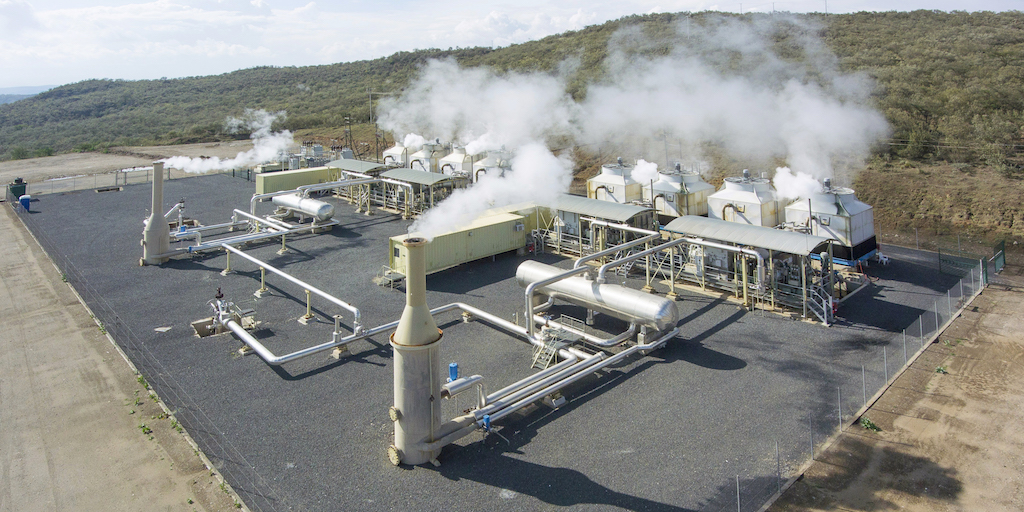Kenya and Australia’s Fortescue Future Industries on Wednesday agreed to invest in the construction of a 300-megawatt green energy and fertilizer facility in Naivasha, Kenya.
The agreement was signed on the same day the European Union committed to investing Sh2.7 billion in a green energy project in Kenya called the “Green Resilient Electricity System” project.
The Kenya-Autralian facility will use Olkaria’s geothermal resources, according to State House spokesman Hussein Mohamed, as part of Kenya’s continual attempts to decrease the production of fossil-based fertilizers, which is a significant source of greenhouse gas emissions.
“The project will also supply electricity to Kenya’s grid, accelerating the phasing out of fossil fuels and reinforcing Kenya’s position as a global leader in renewable energy,” the State House spokesman relayed via a statement.
Cabinet secretaries for Energy and the National Treasury, Davis Chirchir and Njuguna Ndungu, as well as FFI’s executive chairman Andrew Forrest, signed the agreement at State House in Nairobi.
It is the first of three projects that FFI, a unit of Australia’s Fortescue Metals Group, will invest in to support manufacturing and green energy in Kenya.
The deal helps solidify Kenya’s commitment to advancing the growth of environmentally friendly, sustainable industries in the nation.
According to Mohamed, the project and its subsequent developments will help Kenya meet its greenhouse gas reduction commitments while also bolstering the country’s economy and food security.
The “Green Resilient Electricity System” project, which the EU committed to, as mentioned above will use the money to strengthen the nation’s transmission system and support new green electricity generation through a network of power companies.
Martin Andersen, a representative of the EU in Kenya, declared that they would collaborate on the project with the German Development Bank (KfW).
“This project will support new green electricity generation and strengthen the transmission system and help Kenya’s ambition for a 100% green electricity system by 2030,” Martin Andersen noted.
Andersen added that the EU is collaborating with other interested parties to create a roadmap and strategy for the country’s use of green hydrogen. “Green Hydrogen is a new sector that can create new business opportunities for the country and be a major job creator mainly in fertilizer production,” he stated.
Source : Africa Business Insider





Add Comment